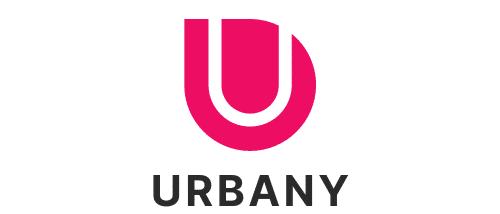Managing health records in a time of technological advancements is both exciting and challenging. In this era of big data, blockchain technology shows immense promise for revolutionizing the healthcare sector, specifically in ensuring the integrity and security of electronic health records (EHR). As you delve deeper into this article, you’ll understand how blockchain can address the challenges in the current health data management system and enhance patient care.
Transforming Patient Access to Health Records
Most often, patients are left on the sidelines when it comes to accessing their own health records. With numerous healthcare providers involved in a patient’s care, the data becomes fragmented and scattered. Blockchain technology, with its decentralization prowess, proposes to solve this.
A lire en complément : Can AI Insights into Big Data Improve Strategic Decision-Making in Large Enterprises?
The blockchain-based system inherently provides patients with greater control over their health records. It enables a patient-centric approach where individuals can access and manage their personal health data across different healthcare providers. Given its immutable nature, blockchain assures the integrity and consistency of these records as they transition between various healthcare entities. It eliminates data discrepancies and ensures that patients, doctors, and other stakeholders are looking at the same, accurate information.
Ensuring Data Privacy and Security in Health Records
Data breaches in healthcare are a pressing concern. Hackers can exploit vulnerabilities in the current health data management systems and gain unauthorized access to sensitive patient information. Blockchain, being a decentralized ledger, offers a compelling solution to these security threats.
Avez-vous vu cela : What Advances Are Being Made in Robotic Automation of Laboratory Processes?
In a blockchain-based electronic health record system, medical records are not stored in a central location. Instead, they are distributed across a network of nodes, making them less susceptible to hacking. Furthermore, advanced cryptography in blockchain technology assures data privacy and security, thereby fortifying the patient’s trust in electronic health records.
Overcoming Interoperability Challenges in Health Data Management
Interoperability, or the ability of different healthcare systems to communicate and exchange data, is a significant challenge in the current health data management system. Without interoperability, healthcare providers often work with incomplete patient histories, which can impact patient care.
Blockchain technology can dramatically improve this. With a decentralized and transparent nature, blockchain can act as a universal health record system, integrating data from various sources. It ensures seamless data exchange, thereby facilitating better communication among healthcare providers. It also makes it easier for healthcare professionals to make informed decisions based on comprehensive patient records.
Streamlining the Process of Electronic Health Record (EHR) Auditing
The auditing of electronic health records is crucial for maintaining data integrity, ensuring compliance, and identifying any fraudulent activities. However, the current auditing processes are often time-consuming and complex. Blockchain technology brings a breath of fresh air to this aspect of EHR management.
In a blockchain-based system, each transaction (or patient record update) is timestamped and added to the blockchain as a block. This maintains a clear, chronological record of all activities related to a patient’s health record. This real-time audit trail not only accelerates the auditing process but also makes it more transparent and reliable.
Paving the Way for Advanced Health Research and Analytics
In the age of information, data-driven decisions are shaping the future of healthcare. However, the lack of access to comprehensive, accurate, and up-to-date patient data often hampers research and analytics. Here, blockchain’s potential to transform data access and management comes into play.
Blockchain technology facilitates access to a vast, decentralized repository of patient data, while still maintaining data privacy and security. Researchers and analysts can tap into this wealth of information, derive meaningful insights, and develop advanced healthcare solutions. The blockchain-based system can effectively bridge the gap between data silos, paving the way for advanced health research and analytics.
By now, you should have a better understanding of how blockchain technology can revolutionize the management of electronic health records. From improving patient access and data security to enabling comprehensive research and analytics, blockchain holds immense potential. As we navigate the challenges and possibilities of healthcare technology in this digital age, blockchain seems to be a promising ally for a healthier future.
Integrating Smart Contracts for Enhanced Efficiency in Healthcare Data Management
The blockchain technology further exhibits its value in the healthcare sector through the implementation of smart contracts. Primarily used in financial transactions, smart contracts are self-executing contracts with the terms of the agreement directly written into lines of code. In the context of health records management, smart contracts can significantly enhance the efficiency and accuracy of data handling.
For instance, when a healthcare provider needs to access a patient’s health record, a smart contract can automatically verify the access control, validate the session key, and allow or deny the request based on predefined rules. This eliminates the need for manual intervention, thereby reducing the risk of human errors and data breaches.
Notably, smart contracts also enable real-time updates, meaning any changes to a patient’s health record are instantly reflected across the decentralized network. This ensures that all healthcare providers involved in a patient’s care have access to the most current and accurate information. Ultimately, the integration of smart contracts provides a more streamlined and secure method of managing electronic health records.
By automating routine tasks, smart contracts can also free up valuable time for healthcare professionals to focus more on delivering quality patient care. In the bigger picture, the use of smart contracts in blockchain-based EHR management can contribute to a more efficient, reliable, and patient-centric healthcare system.
The Proposed Framework for Blockchain-based Health Record Management
The potential of blockchain-based system in health record management is vast. Yet, its implementation requires a well-thought-out framework that addresses the unique requirements and challenges of the healthcare sector. Essentially, this proposed framework should integrate the key features of blockchain technology — decentralization, smart contracts, data security, and privacy — while also considering the specific needs of healthcare providers, patients, and other stakeholders.
The preliminary step in this framework is ensuring a secure and user-friendly interface for patients to access and manage their health data. This should be followed by the establishment of a decentralized network of nodes, each responsible for verifying and recording transactions on the blockchain. In addition, the framework should incorporate advanced cryptography to assure data privacy and security.
For efficient data sharing among healthcare providers, the framework should facilitate seamless interoperability. This could be achieved through standardized data formats and protocols. Furthermore, the framework should leverage smart contracts for automated verification and real-time updates of health records.
Lastly, the framework should provide mechanisms for auditing and data analytics. The inherent transparency and chronology of blockchain can help streamline the auditing process. Simultaneously, the vast, decentralized repository of patient data on the blockchain can facilitate advanced health research and analytics.
Conclusion: Blockchain Technology – The Future of Health Records Management
In conclusion, blockchain technology holds immense potential to revolutionize the way electronic health records are managed. Its key strengths — decentralization, cryptography, and smart contracts — can address the pressing challenges of data fragmentation, security, privacy, interoperability, and efficiency in the current health data management systems.
The proposed framework for a blockchain-based health record management system presents a promising approach to integrate these strengths while catering to the specific needs of the healthcare sector. As the technology continues to mature, more healthcare entities are likely to adopt blockchain, paving the way for a more secure, efficient, and patient-centric healthcare system.
However, the transition to blockchain-based systems also calls for a proactive effort from all stakeholders involved — from healthcare providers and patients to tech developers and regulatory authorities. This includes gaining a thorough understanding of blockchain technology, building technical competencies, and developing supportive policies and regulations. With such collective efforts, blockchain can become a reliable ally in our pursuit of a healthier future.











